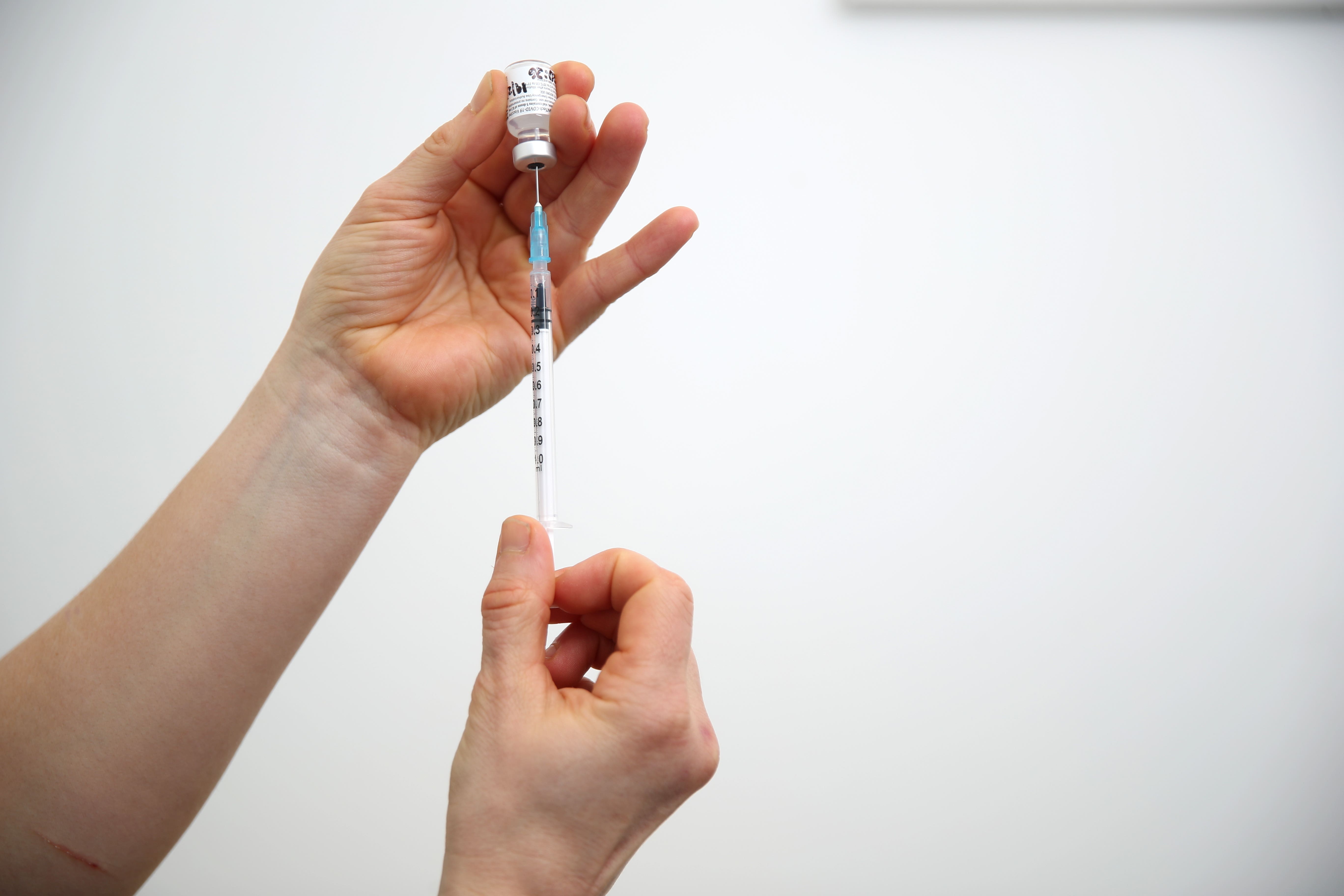Trainee solicitor died from ‘rare complication’ of AstraZeneca Covid-19 jab
Oli Akram Hoque, 26, developed a “vaccine induced” cerebral venous sinuous thrombosis after his first dose of AstraZeneca’s Covid-19 vaccine.

Your support helps us to tell the story
From reproductive rights to climate change to Big Tech, The Independent is on the ground when the story is developing. Whether it's investigating the financials of Elon Musk's pro-Trump PAC or producing our latest documentary, 'The A Word', which shines a light on the American women fighting for reproductive rights, we know how important it is to parse out the facts from the messaging.
At such a critical moment in US history, we need reporters on the ground. Your donation allows us to keep sending journalists to speak to both sides of the story.
The Independent is trusted by Americans across the entire political spectrum. And unlike many other quality news outlets, we choose not to lock Americans out of our reporting and analysis with paywalls. We believe quality journalism should be available to everyone, paid for by those who can afford it.
Your support makes all the difference.A trainee solicitor died as a result of a “very rare complication” caused by an AstraZeneca vaccine about a month after getting the Covid-19 jab, a coroner has concluded.
Oli Hoque, 26, from Ilford, east London, received a dose of the vaccine on March 19 last year.
He started suffering headaches on or around April 1 2021 which later became “excruciating” before he died at Queen’s Hospital in Romford, on April 15 2021.
He had developed a “vaccine induced” cerebral venous sinuous thrombosis (CVST), when a blood clot occurs in the brain’s sinuses, East London Coroner’s Court in Barking, east London heard on Friday.
The parents are still suffering from it, particularly the father who is going through counselling at the moment
His medical notes showed a history of asthma but not of migraines, the inquest heard.
In a brief narrative conclusion, coroner Nadia Persaud stated: “Oli Hoque died as a result of a very rare complication of a Covid-19 vaccine.”
After getting his first jab, she said Oli began to “suffer from headaches” which “became progressively worse” before he attended the accident and emergency department at King George Hospital on April 4 2021.
But she said “Oli did not present with any symptoms at this time” which would have required him to be assessed in the emergency department.
In the “late evening” of April 5 and “suffering from a severe headache”, Oli was taken by his sister to the Royal London Hospital where a general practitioner (GP) assessed him and found “no signs of raised intracranial pressure”.
A “migraine was diagnosed” and he was prescribed medication for nausea and migraine.
After the consultation, he was still feeling unwell and so the GP “administered an injection for dizziness” before Oli later left the hospital and went home.
The coroner added: “At around 11am on April 6 Oli’s condition declined significantly and an ambulance was called.”
She said he was “suffering from seizures” and was rushed to Queen’s Hospital, where radiological investigations revealed he was suffering from CVST.
She said the multi-disciplinary team treating him shared an “agreed impression” that the CVST was “vaccine induced” and that this assessment was later supported by a post-mortem examination.
The coroner noted that on April 7 2021 the Medicines and Healthcare Products Regulatory Agency, responsible for ensuring medicines are safe, issued new advice to healthcare professionals on a “possible link” between the AstraZenca Covid-19 vaccine and specific types of blood clot.
In a statement given via video link before the coroner’s conclusion, Oli’s uncle Shablul Hoque thanked the coroner for conducting the hearing, adding: “It has been quite a while since we have suffered the loss.
“The parents are still suffering from it, particularly the father who is going through counselling at the moment.
“We can’t have him back now. We hope, whatever the outcome, we get sufficient information and knowledge from it and things will improve for the society at large.
“And hopefully the hospital services will improve, based on the outcome.”